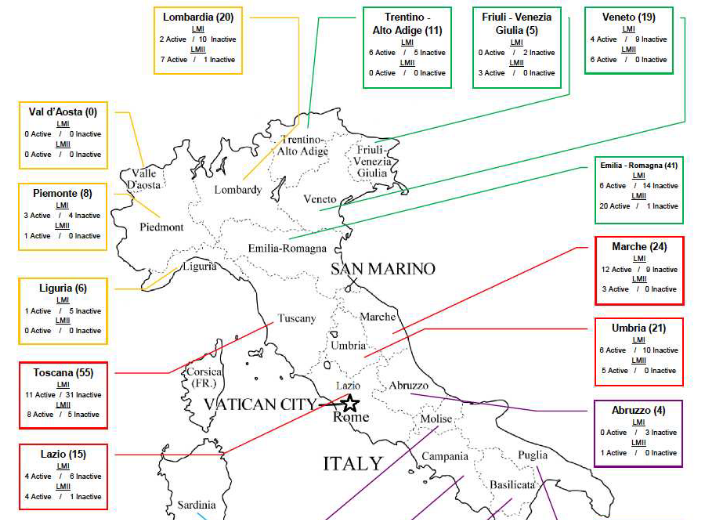
The Italian Road to Recuperating Enterprises and the Legge Marcora Framework
[Editor's note: See here for more about the cooperative and solidarity economy of Italy.]
From the abstract:
Recent years have witnessed a re-emergence of business rescues and buyouts of failing firms or of
firms with succession issues to cooperatives. In our current times of lingering economic crises and
austerity, in particular, worker-initiated business conversions to cooperatives - or worker-
recuperated enterprises - are directly addressing chronic under- and unemployment, rising rates of
firm closures, and business transfer issues. They also suggest ways of bringing economic control
back to the hands of workers and communities via practices of collective entrepreneurship.
This report focuses on Italy’s experiences with worker-recuperated enterprises as worker buyouts
(WBOs). They have been facilitated by Italy’s extensive cooperative, business, and labour
legislation and enabling environment, spearheaded by its Legge Marcora (Marcora Law) policy
and funding framework - a unique collaboration for business rescues and saving jobs between
workers, the state, and the cooperative movement. With particular emphasis on the resurgence of
WBOs since the latest period of economic crisis spawned by the Great Recession, this report
reviews and updates research we have been conducting at the European Research Institute on
Cooperative and Social Enterprises (EURICSE) by specifically exploring: the political economic
conditions from out of which Italian WBOs emerge; Italian and European policies on business
transfers; the legal and financial supports that facilitate WBOs in Italy; Italian WBOs’ economic
sectors of activity, geographic spread, territorial concentration, and demographic dimensions; and
their organizational makeup and conversion processes.
Euricse’s mission is to promote knowledge development and innovation for the field of cooperatives, social enterprises and other nonprofit organizations engaged in the production of goods and services. The Institute aims to deepen the understanding of these types of organizations and their impact on economic and social development, furthering their growth and assisting them to work more effectively. Through activities directed toward and in partnership with both the scholarly community and practitioners, including primarily theoretical and applied research and training, we address issues of national and international interest to this sector, favouring openness and collaboration.

Add new comment